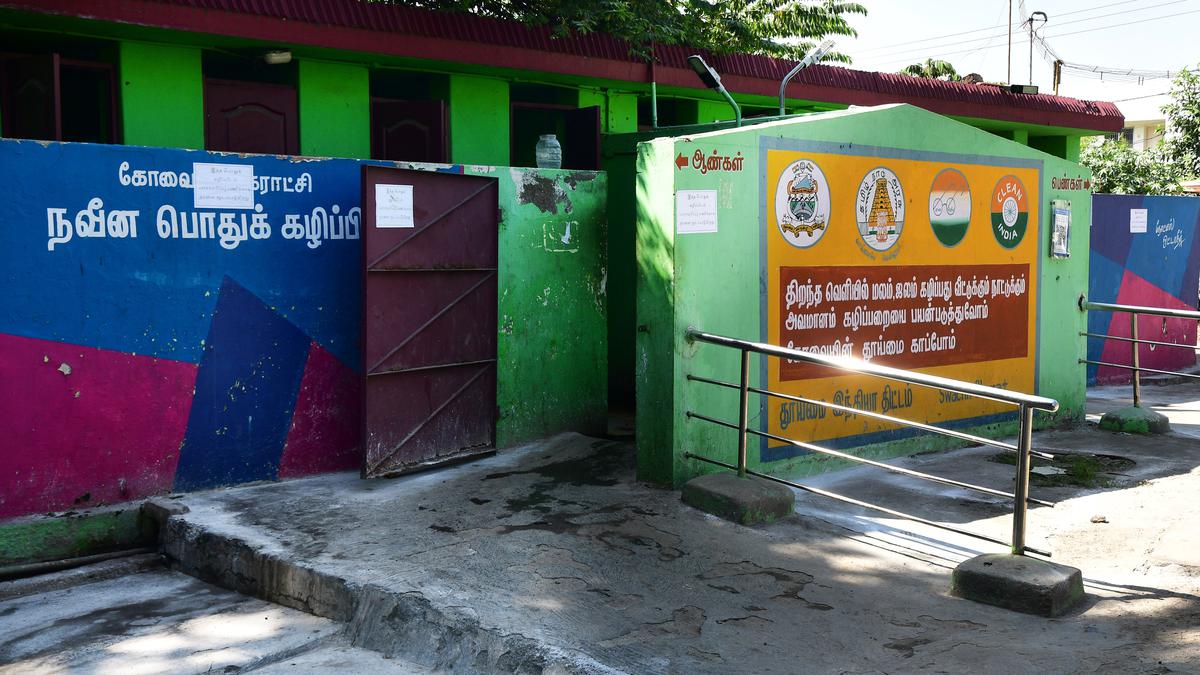 |
|
The Supreme Court of India, in a landmark judgment delivered on January 15, 2025, declared access to clean and easily accessible public toilets a fundamental right, inextricably linked to human dignity and the very essence of a welfare state. This ruling, stemming from a writ petition highlighting the inadequate sanitation facilities in Indian courts, has far-reaching implications for public health, gender equality, and the overall functioning of the judicial system. The court's decision underscores the critical role of sanitation in ensuring a safe and dignified life for all citizens, irrespective of gender, disability, or socioeconomic status. The judgment emphasizes that the lack of adequate sanitation is not merely a matter of convenience, but a systemic issue that undermines fundamental human rights enshrined in Article 21 of the Indian Constitution, which guarantees the right to life and personal liberty. This right, the court clarifies, inherently encompasses the right to a safe and hygienic environment. The judgment specifically criticizes the poor maintenance of public toilets even in readily accessible locations like national highway toll plazas, highlighting a systemic failure in providing and maintaining essential public infrastructure.
Justice Mahadevan, authoring the 34-page verdict, directly addresses the responsibilities of state and union territory governments. The judgment explicitly states that the failure to provide and maintain clean and accessible washrooms for all genders prevents states from legitimately claiming to be welfare states. This strong assertion places the onus squarely on the government to ensure the provision and upkeep of these facilities, recognizing that their absence constitutes a significant deficit in the provision of basic human rights. The court’s concern extends beyond the general public to specifically address the deplorable conditions found within courthouses and tribunals across the country. The judgment acknowledges that the need for adequate restroom facilities is especially acute within the judicial system, where judges, advocates, litigants, and staff members work in large numbers. The lack of proper sanitation in these spaces is not only inconvenient, but it undermines the very atmosphere of justice, hindering access to legal processes and perpetuating inequality within the judicial system itself. The lack of adequate facilities in district courts, particularly in rural areas, was singled out as a matter of grave concern, reflecting a systemic failure in upholding the constitutional obligation to provide a safe, dignified, and equitable environment for all seeking justice.
The Supreme Court's ruling goes beyond mere observation; it issues a set of concrete directives to state and union territory governments. The court mandates the construction and provision of separate, gender-sensitive toilet facilities across the country, setting a clear timeline for action. States are required to submit a comprehensive status report within four months, detailing the progress made in addressing this critical infrastructure deficit. This emphasis on accountability ensures that the judgment is not just a symbolic gesture, but a catalyst for real change. The court’s decision is a significant legal precedent, reaffirming the importance of access to clean and safe sanitation as an integral part of human dignity and the right to life. It has the potential to reshape sanitation policies across India, driving initiatives to improve public health, promote gender equality, and strengthen the integrity of the judicial system. The four-month deadline underscores the court's urgency in addressing this longstanding issue, emphasizing the detrimental impact of inadequate sanitation on the lives of millions of citizens and the smooth functioning of the justice system. Failure to comply with these directives could have further legal ramifications, underscoring the court's determination to ensure the effective implementation of this landmark decision.
The implications of this ruling extend far beyond the immediate provision of toilets. The Supreme Court's judgment serves as a powerful statement about the government's responsibility to uphold the fundamental rights of its citizens. It challenges the prevailing societal norms that often marginalize and ignore the needs of vulnerable populations, including women, transgender individuals, and people with disabilities. By declaring access to clean toilets as a basic right, the court is not merely addressing a sanitation issue, but rather advocating for a more inclusive and equitable society. This decision also sets a precedent for future legal challenges related to the right to sanitation and other aspects of public health infrastructure. It highlights the importance of considering the impact of infrastructural deficits on the enjoyment of fundamental rights, pushing for a more comprehensive understanding of the connections between public policy, human rights, and overall societal well-being. The case reinforces the judiciary's active role in ensuring the government's accountability in upholding its constitutional responsibilities, setting the stage for a more robust and effective system of governance in India.
The Supreme Court’s judgment on sanitation rights serves as a potent reminder that the right to a dignified life extends beyond mere survival; it encompasses the right to a safe, healthy, and respectful environment. By highlighting the systemic failures in providing and maintaining adequate sanitation facilities, particularly for vulnerable groups, the court has not only provided a much-needed legal precedent, but it has also spurred a crucial conversation about the government’s role in guaranteeing the fundamental rights of its citizens. This decision is expected to trigger widespread efforts to improve sanitation infrastructure across India, leading to substantial improvements in public health and overall well-being for millions. The ruling underscores the interconnectedness between various dimensions of human rights – the right to life, dignity, and equality are all deeply impacted by the availability of clean and safe sanitation, solidifying the Supreme Court's position as a key protector of fundamental rights in India. The future implementation of this ruling will be critical in assessing its long-term impact, but the initial judgment establishes a strong foundation for meaningful change in India’s sanitation landscape.
Source: Easy access to clean toilets a basic right, essential for human dignity, says Supreme Court judgment
